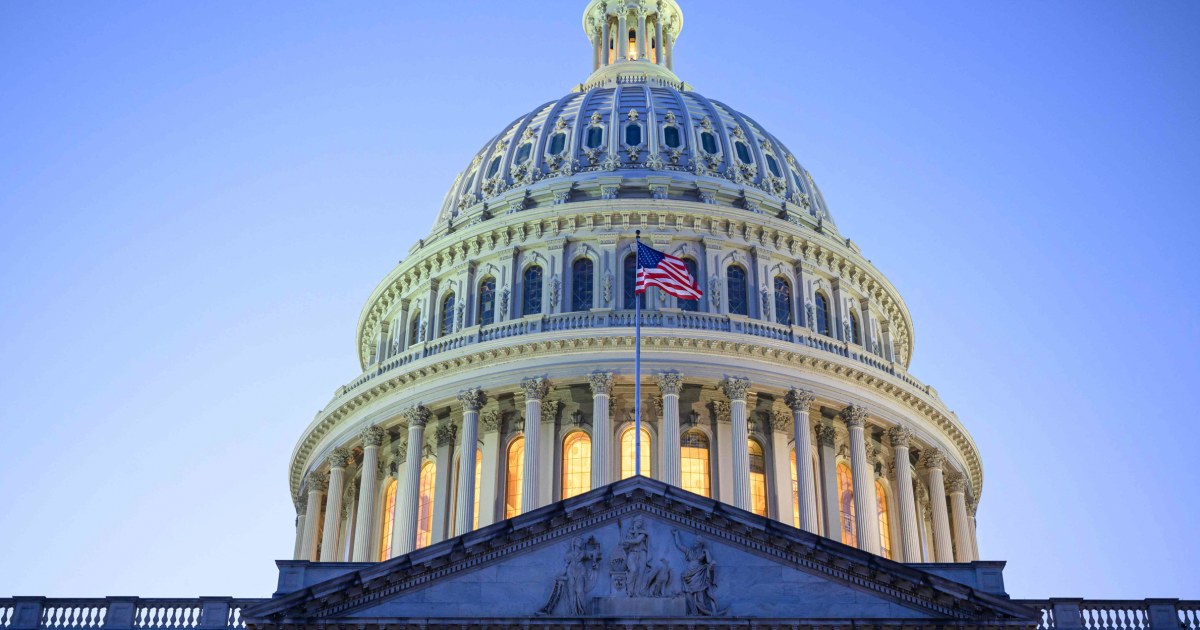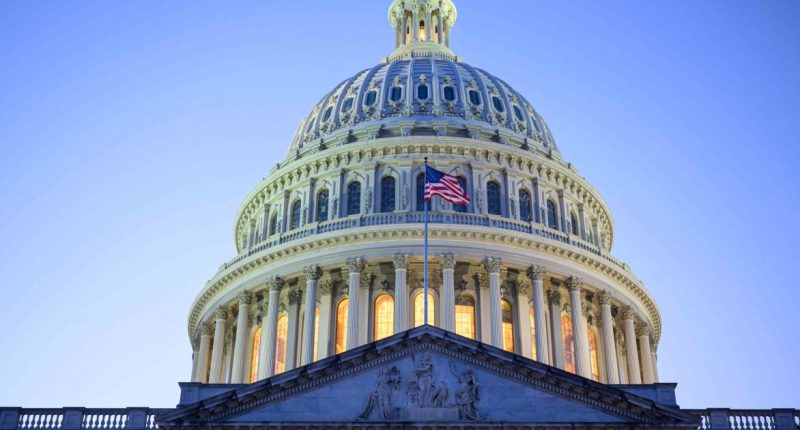
WASHINGTON — Congressional leaders still haven’t reached an agreement on how to fund a broad swath of the federal government, with just over four days to go before the deadline.
Money expires at the end of Friday for the Departments of State, Defense, Homeland Security, Labor, Health and Human Services and a host of other agencies.
Three sources familiar with negotiations tell NBC News the Homeland Security (DHS) portion is the final sticking point between lawmakers, with the other five funding bills covering the rest of the affected departments effectively settled.
Heading into the weekend, negotiators were poised to release a package that includes the five other funding bills and funds DHS separately on an extended stopgap basis, largely continuing the status quo. But now they’re back to negotiating a full-year funding bill for the department through the end of September.
Separately, a source familiar with negotiations said the White House and Democrats want more border security and enforcement money, while another source said Republicans want to reprioritize DHS funds toward the agency’s core mission, without elaborating.
The pivot back to those negotiations is slowing down the release of text for all six bills. And time is running short to get it through Congress even if they strike a deal imminently. House Speaker Mike Johnson, R-La., has indicted he’ll give lawmakers 72 hours to read the text before a vote. The Senate will then require unanimous consent from all members to vote by 11:59 p.m. ET on March 22 to avoid a partial government shutdown.
The deal is being negotiated by Johnson, Senate Majority Leader Chuck Schumer, D-N.Y., the White House and top appropriators in both chambers. It comes after Congress, which broke up the process into two, passed the first tranche of bills earlier this month.
A senior GOP aide said there is progress, and it’s too early to tell whether a short-term stopgap will be needed to keep the agencies running if negotiations drag on.
The political salience of immigration, particularly among conservatives, presents a landmine for Johnson.
On Monday afternoon, two leaders of the hard-right Freedom Caucus, Reps. Bob Good, R-Va., and Chip Roy, R-Texas, issued a letter from 41 Republicans demanding that any DHS funding bill include “the core elements of H.R. 2, the Secure the Border Act,” or Biden’s immigration policies won’t change, they said.
“Therefore, we ask you to join us in rejecting the appropriations package (or anything similar) slated to be before the House that will directly fund these disastrous policies, and choose instead to stand against this assault on the American people,” they wrote.
The hard-right members are widely expected to vote against the package, and their votes aren’t necessary to create the bipartisan coalition necessary to pass the bill. But those members can create political headaches for Johnson if they’re sufficiently angry about it.
While the two parties have clashed over the appropriate venue for border policy changes — the funding bill or a separate package — the White House has also sought additional funding for Immigration and Customs Enforcement and other operational needs.
Republicans rejected additional funding for ICE in a bipartisan border deal agreed to by senators and the White House, demanding additional policy changes. But they too have demands in the funding bill. The White House has also sought increased flexibility to aid border operations, sources with knowledge said. It is unclear how many of President Joe Biden’s requests will make it into the bill.
It’s highly unusual for Congress to continue haggling over government funding nearly half a year into the fiscal year. Funding for fiscal year 2025 is due by the end of September.
Source: | This article originally belongs to Nbcnews.com










